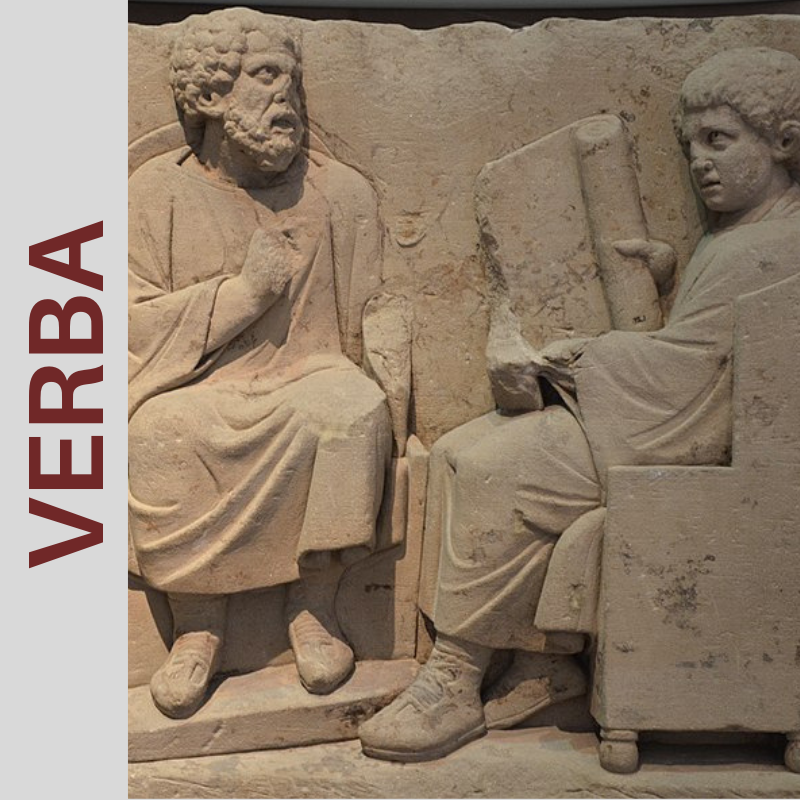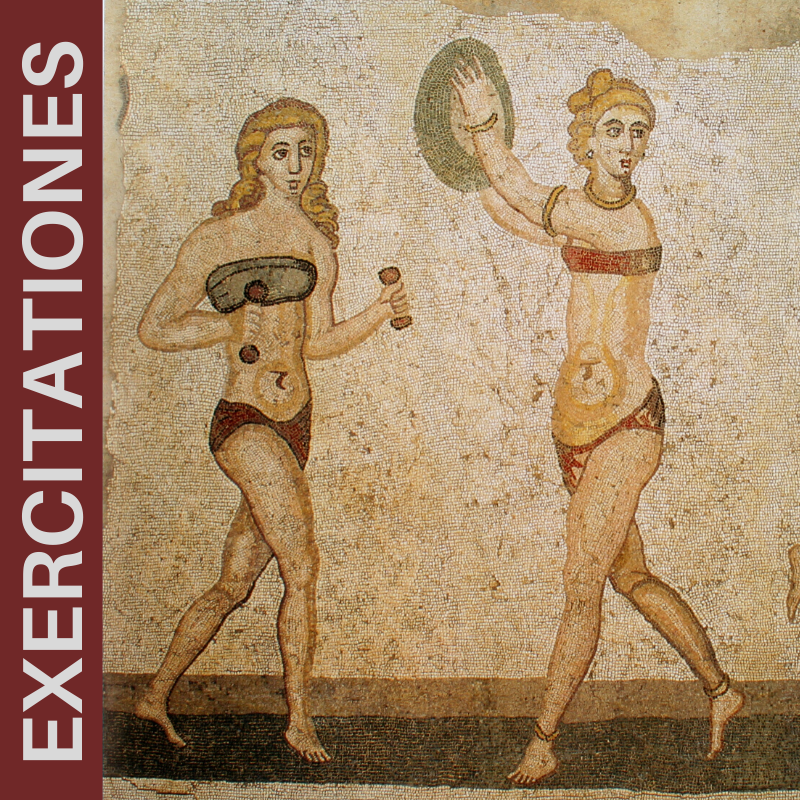Verbs
First Conjugation
appellō (1) - to call, address, name
iūrō (1) - to take an oath, swear
iuvō, iuvāre, iūvī, iūtum - to help; to please, delight
spectō (1) - to look at, consider
Second Conjugation
careō, -ēre, -uī - to lack (+ abl.)
impleō, -plēre, -plēvī, -plētum - to fill in, fill up
maneō, manēre, mānsī, mānsum - to remain
moveō, movēre, mōvī, mōtum - to move
praebeō, -ēre, -uī, -itum - to furnish, supply, render
sedeō, sedēre, sēdī, sessum - to sit
Third Conjugation -ō
cadō, cadere, cecidī, cāsum - to fall, be killed
cingō, cingere, cīnxī, cīnctum - to encircle, surround
corrumpō, -rumpere, -rūpī, -ruptum - to break up, destroy, ruin
crēscō, crēscere, crēvī, crētum - to grow, increase
currō, currere, cucurrī, cursum - to run
frangō, frangere, frēgī, frāctum - to break, shatter
tangō, tangere, tetigī, tāctum - to touch
tendō, tendere, tetendī, tentum - to stretch, extend
Third Conjugation -iō
capiō, capere, cēpī, captum - to seize
accipiō, -cipere, -cēpī, -ceptum - to receive
excipiō, -cipere, -cēpī, -ceptum - to take out
incipiō, -cipere, -cēpī, -ceptum - to begin
recipiō, -cipere, -cēpī, -ceptum - to take back, receive; sē recipere - to betake oneself, go
deficiō, -ficere, -fēcī, -fectum - to fail, give out; to revolt from (de • faciō, facere, fēcī, factum)
patior, patī, passum - to suffer, endure, permit
Irregular
fīō, fierī, factum - to become, happen, be done
trānseō, -īre, -iī, -itum - to go across (trans • eō, īre, iī, itum)
Nouns
First Declension
cūra, -ae f. - care, concern
lacrima, -ae f. - tear
lingua, -ae f. - tongue; language
via, -ae f. - way, street
Second Declension
animus, -ī m. - spirit, mind
locus, -ī m. - place; loca (n. pl.) region
membrum, -ī n. - limb, member of the body
morbus, -ī m. - sickness, disease
sīgnum, -ī n. - sign, standard, mark
Third Declension
carō, carnis f. - flesh, meat
coniunx, coniugis m./f. - spouse, husband, wife
corpus, corporis n. - body
genus, generis n. - origin, lineage, kind
honor, -ōris m. - honor, glory, office
lēx, lēgis f. - law
mors, mortis f. - death
nox, noctis f. - night
ops, opis f. - assistance, resources
ōs, ōris n. - mouth, face
os, ossis n. - bone
parēns, parentis m./f. - parent
pars, partis f. - part
pectus, pectoris n. - chest, breast
scelus, sceleris n. - crime, sin
senex, senis m. - old man, elder; senior
virgō, virginis f. - maiden, virgin, girl
vīs, vīs f. - force, strength (in pl.), power; sexual violence
vulnus, vulneris n. - wound
Adjectives
First and Second Declension
aeger, aegra, aegrum - sick
dīversus, -a, -um - different
fessus, -a, -um - weary, tired
foedus, -a, -um - foul
īnferus, -a, -um - low, lower; (as subst. pl.) the dead
longus, -a, -um - long, far
niger, nigra, nigrum - black
sānus, -a, -um - sound, sane
validus, -a, -um - strong
Third Declension
gravis, -e - heavy, serious
trīstis, -e - sad, solemn, grim
Prepositions
prope - near, next (+acc.); nearly, almost (adv.)
super - over (adv. and prep. +acc.)
Conjunctions
ac - and in addition, and also, and
ergō - therefore
neque - and not, nor
postquam - after
quamquam - however, although
quoque - also, too
vel - or else, or; even
Adverbs
haud -not at all, by no means
modo - just, just now;
mox - soon
nimis or nimium - excessively, too much
procul - at a distance, far
rūrsus - back, again
simul - at the same time
tamquam - as much as, just as, as if
vērō - in fact, certainly, without doubt
Except where otherwise noted, material by Roman and Beyond: a Latin Curriculum is licensed under a Creative Commons Attribution-NonCommercial-ShareAlike 4.0 International License.





